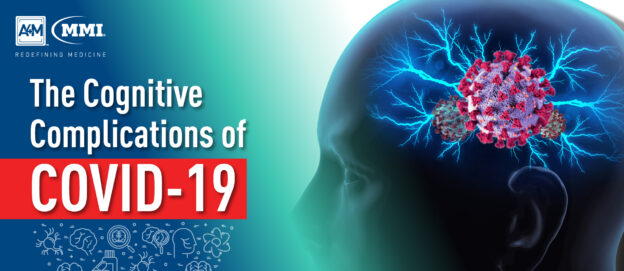A growing understanding of complex cellular processes, burgeoning clinical trial data indicative of revolutionary breakthroughs, and continued research efforts in longevity science have all contributed to numerous advancements in the anti-aging field. As part of our mission to equip healthcare practitioners and medical professionals with the most clinically current and relevant education, we present a revelatory event curated and hosted by world-renowned experts and industry leaders – the A4M 28th Annual World Congress. Taking place between December 12-13, 2020, the premier event will delve into the intricacies of anti-aging innovations while providing participants with a comprehensive update of the regenerative medicine industry.
Hosted via a top-tier virtual platform, this year’s Congress will be delivered right to attendees regardless of their location in the world and will continue to deliver the highest levels of dynamic and interactive advanced continuing medical education. Attendees of the 28th Annual World Congress can expect to experience world-class educational programming, a collaborative environment filled with valuable networking opportunities, as well as a close examination of entrepreneurial and industry-specific insights engineered to empower them to push the boundaries of their practice.
Latest Topics in Anti-Aging Medicine
Participants of the 28th Annual World Congress <https://www.a4m.com/world-congress-2020.html> will have the opportunity to delve into a vast array of topics within longevity science. From the latest discoveries in regenerative and stem cell therapeutics to a comprehensive exploration of the biological trial framework, medical professionals will be expertly guided through the most clinically relevant subjects in the anti-aging world.
Regenerative Therapies
A continued and growing interest from the medical industry has been fueling the scientific investigation of biological aging processes alongside potential strategies for delaying them and preventing age-related diseases. This year’s Congress will encompass recent developments in stem cell research, which have prompted the development of novel therapeutics that show promise in optimizing stem cell treatments, during the first day of the event. Emerging therapies that aim to delay or even reverse cellular degeneration will be explored as their discovery has the potential to help prevent widespread illnesses, such as cancer, diabetes, and dementia. In addition, this educational track will cover recent clinical data that further solidifies the burgeoning field of peptide science and the potential benefits of such treatments in regenerative medicine. At the conclusion of the day, Joseph Cleaver, MD will lead a session spotlighting patient cases and protocols to offer tangible examples of the many concepts discussed.
The Aging Brain
As part of the Congress, attendees will have the opportunity to learn about the latest developments in the current understanding of age-related neurological changes. Taking place during day 1 of the conference, The Aging Brain track will explore pertinent topics in the field, including the NAD+ miracle molecule, recent neuroimaging findings and their implications, as well as breakthrough discoveries that suggest the potential to reverse cognitive decline. During this track, Christopher Shade, PhD will offer a session highlighting effective strategies for elongating health spans titled The Longevity Wheel: A Model for Supplementing Core Biochemical Pathways for Aging Optimization.
Immunocompetency and Aging
Average life-expectancy for humans continues to increase and alongside it the prevalence of age-related disease and functional decline. While the human life span extends further, a growing population of elderly patients is left vulnerable to infectious and chronic disease, resulting in a high level of burden on their health as well as the healthcare system. Providing attendees with a comprehensive examination of one of the most clinically relevant topics today – immunocompetency – Track 2 of the event’s second day will present valuable strategies for practitioners to improve health spans and boost immune competency in their patients as well as themselves. The track will offer insight into alternative methods of immune system support, including herbals and supplements, strategies for reversing autoimmune damage, as well as techniques for advanced wound healing and combating inflammation.
Introducing breakthrough approaches to promoting sustained health in the current pandemic environment, the event will spotlight novel methods for improving the human health span while exploring real-life patient cases under the guidance of faculty experts Andrew Heyman, MD, MHSA and James Lavalle, RPh, CCN.
Hormonal Health
The growing importance of hormonal health is becoming an integral component of modern medicine.
During the 28th Annual World Congress, attendees will have the opportunity to attend numerous educational sessions focused on the wide-ranging effects of hormones and hormonal health factors. Topics will include best practices for hormone testing following a data-based approach led by Mark Newman, MS, as well as the evolutionary differences in gender and their role in longevity led by Felice Gersh, MD. Spotlighting the plausible benefits of hormonal factors on autoimmunity, the Potential of Hormones to Improve Immunocompetence and Longevity session led by Thierry Hertoghe, MD.
Triads: A System’s Biology Approach
Alongside the World Congress, Module V Triads: A System’s Biology Approach will be taking place from December 11-13, 2020. This can’t-miss event will equip clinicians with knowledge of how to evaluate and treat common patient cases using a synthesis of the best clinical practices derived from Modules I-IV. Led by world-renowned experts and industry professionals, this module will investigate the clinical framework of reciprocal relationships between the adrenals-thyroid-pancreas, gut-immune-brain, cardiopulmonary-neuro-vascular, liver-lymph-kidney, and estrogen-progesterone-testosterone.
Attendees will examine patient case histories to explore a wide range of metabolic syndromes, disorders, and diseases to obtain a comprehensive metabolic, functional, and nutritional roadmap of strategies for the management of even the most complex presentations. Module V encompasses natural and hormonal treatment strategies, protocols for treating various systemic pathologies, effective detoxification methods, and approaches to optimizing hormonal health. Upon completion, participants will be able to employ the triad framework and its applications to restore metabolic health and promote resiliency.
As the largest event in regenerative medicine, A4M’s 28th Annual World Congress will present an expertly curated agenda of the latest education necessary for clinicians to remain at the forefront of clinical practice. Joined by other leaders in the field, conference attendees will obtain a comprehensive overview of current knowledge in longevity science and leave equipped with invaluable industry insight, revolutionary clinical strategies, as well as an expanded network of fellow medical professionals seeking to optimize modern healthcare.



